Drip Roasters
Kenya Chepnorio
Kenya Chepnorio
This coffee has sold out and is currently not in our offer. While we mostly work with the same producers and coffees every year, most of our coffees are part of our offer seasonally – usually for a couple of months each year.
This coffee has a very pleasant, juicy acidity, which is paired well with notes of various stone fruit, most of all plum, and citrus fruit. The cup is rounded off by subtle floral notes and a hint of cocoa.
After harvesting the coffee by hand, the cooperative members take it to one of the four processing plants. There, it is sorted and soaked in tanks overnight, before being processed with the traditional washed method that's most common in Kenya. Before it gets packed up again and makes its way to the mill, the coffee is dried on raised beds, which often happens in greenhouse-like constructions due to the rain.
We visited Kenya a while ago along with our sourcing partner Vava Coffee. You can find out more about our trip in our travel report.
Process: Washed
Varieties/Cultivars: SL28, Ruiru 11, Batian
Altitude: 1700-2000 masl, 0.1°S
Cup Profile: Plum, Apricot, Grapefruit
Share
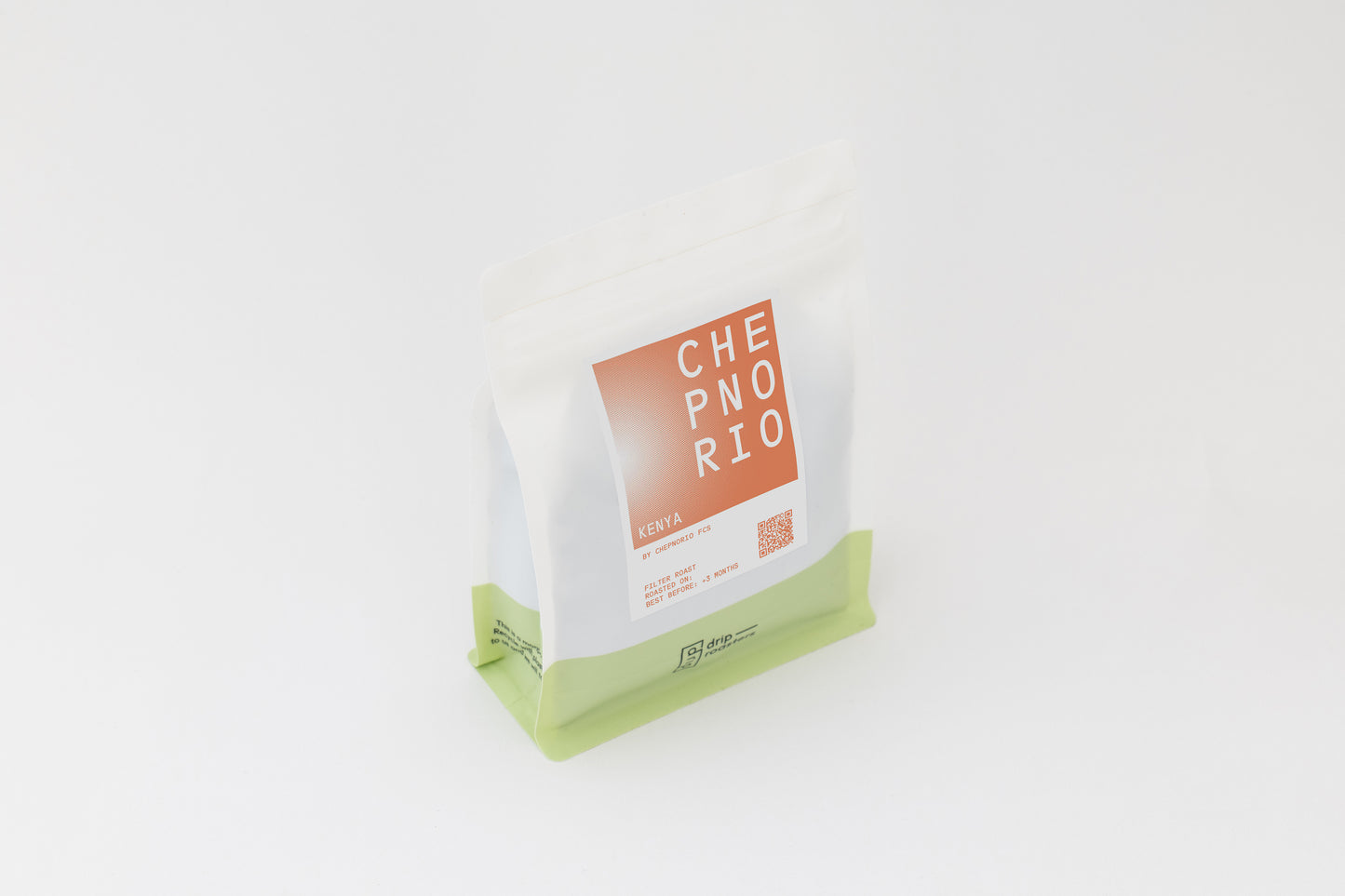
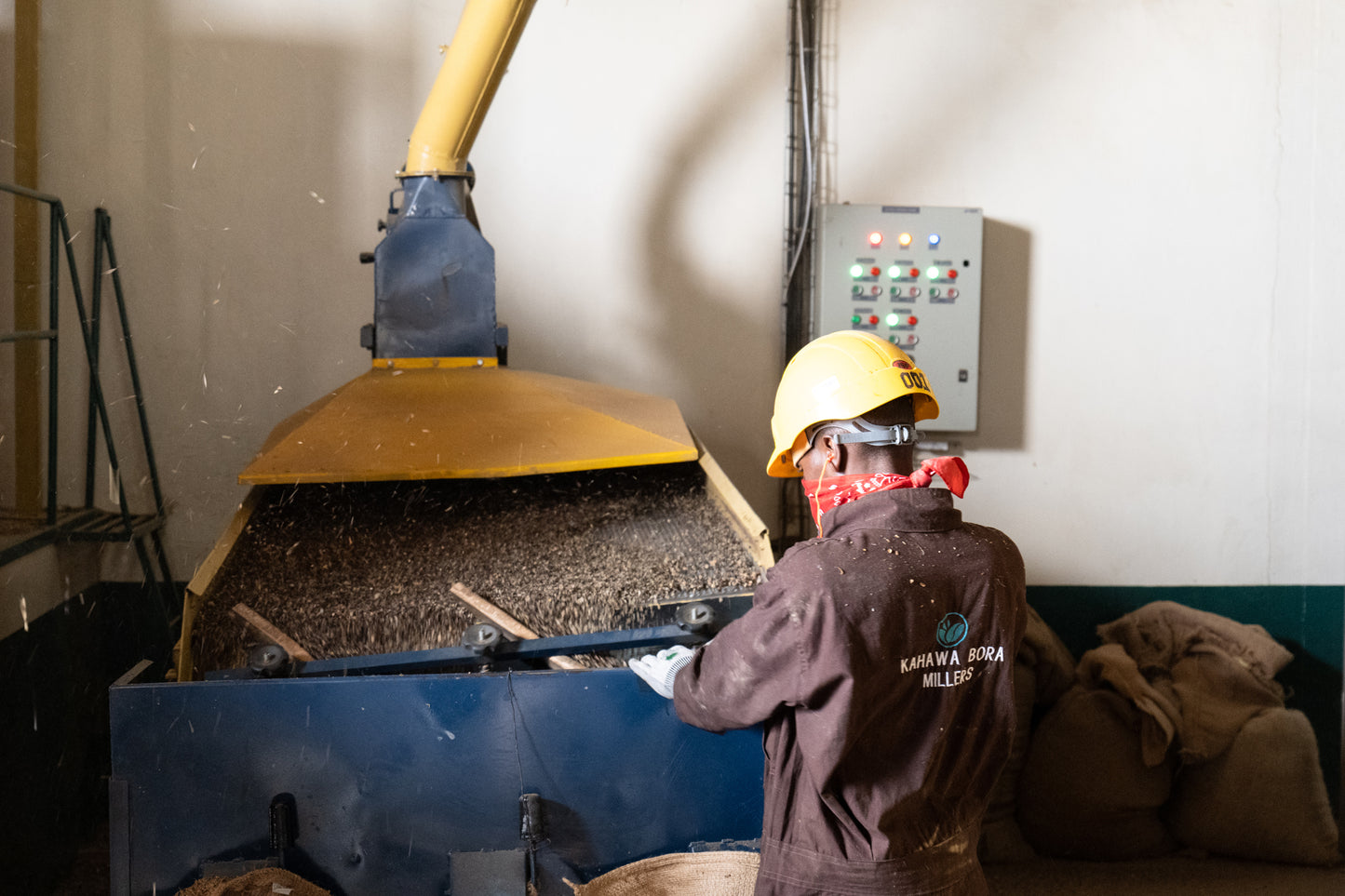
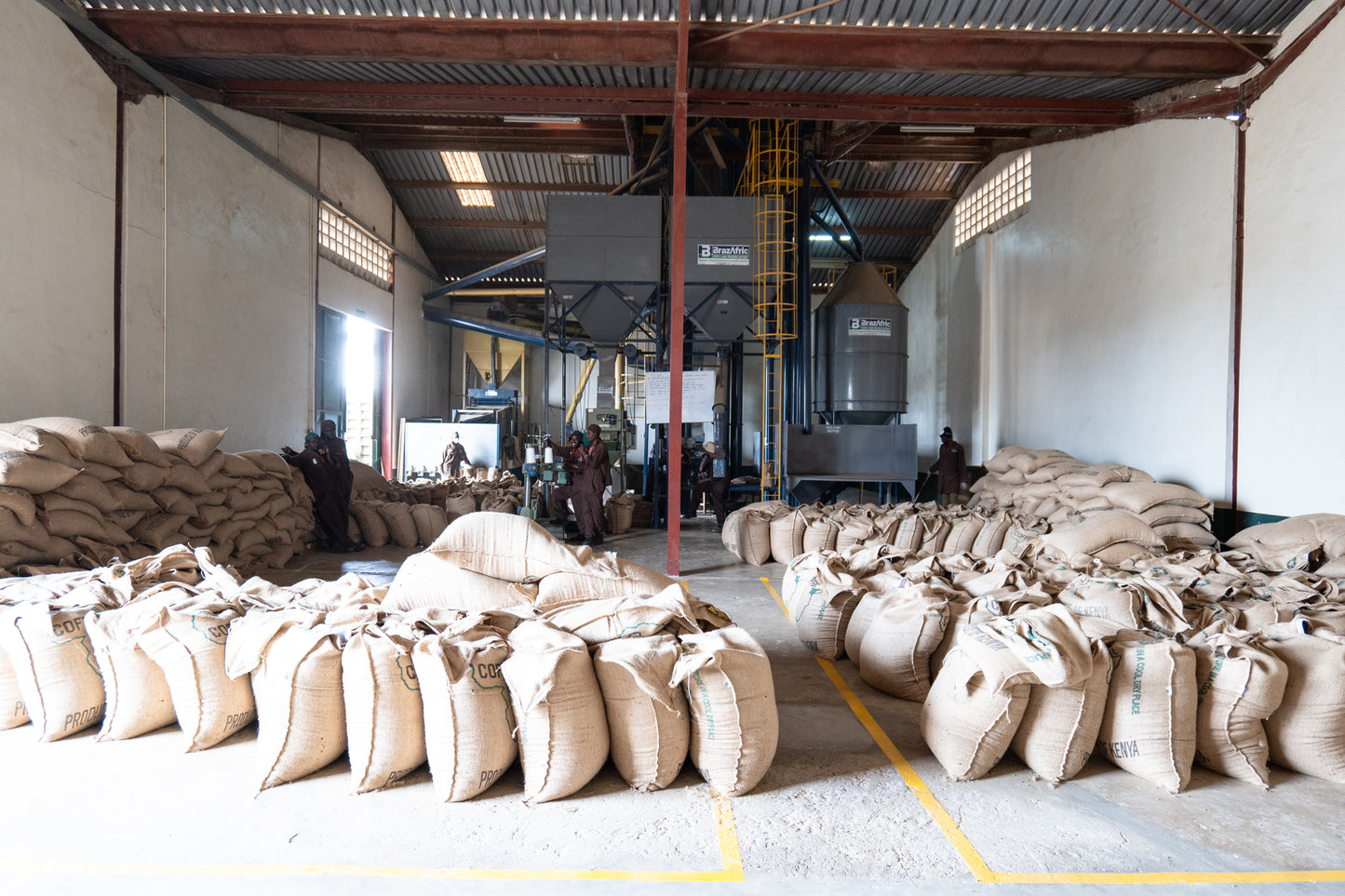
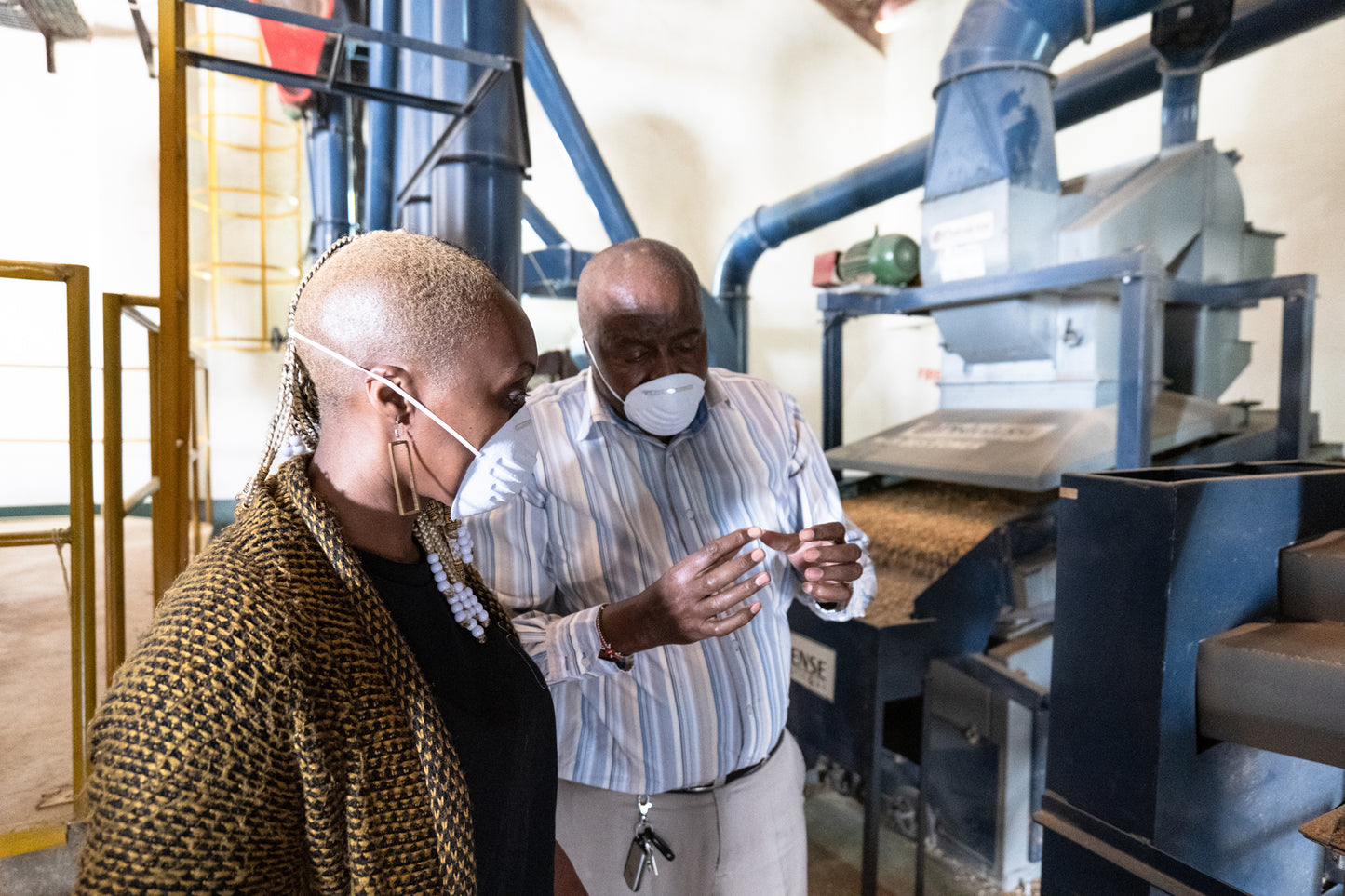
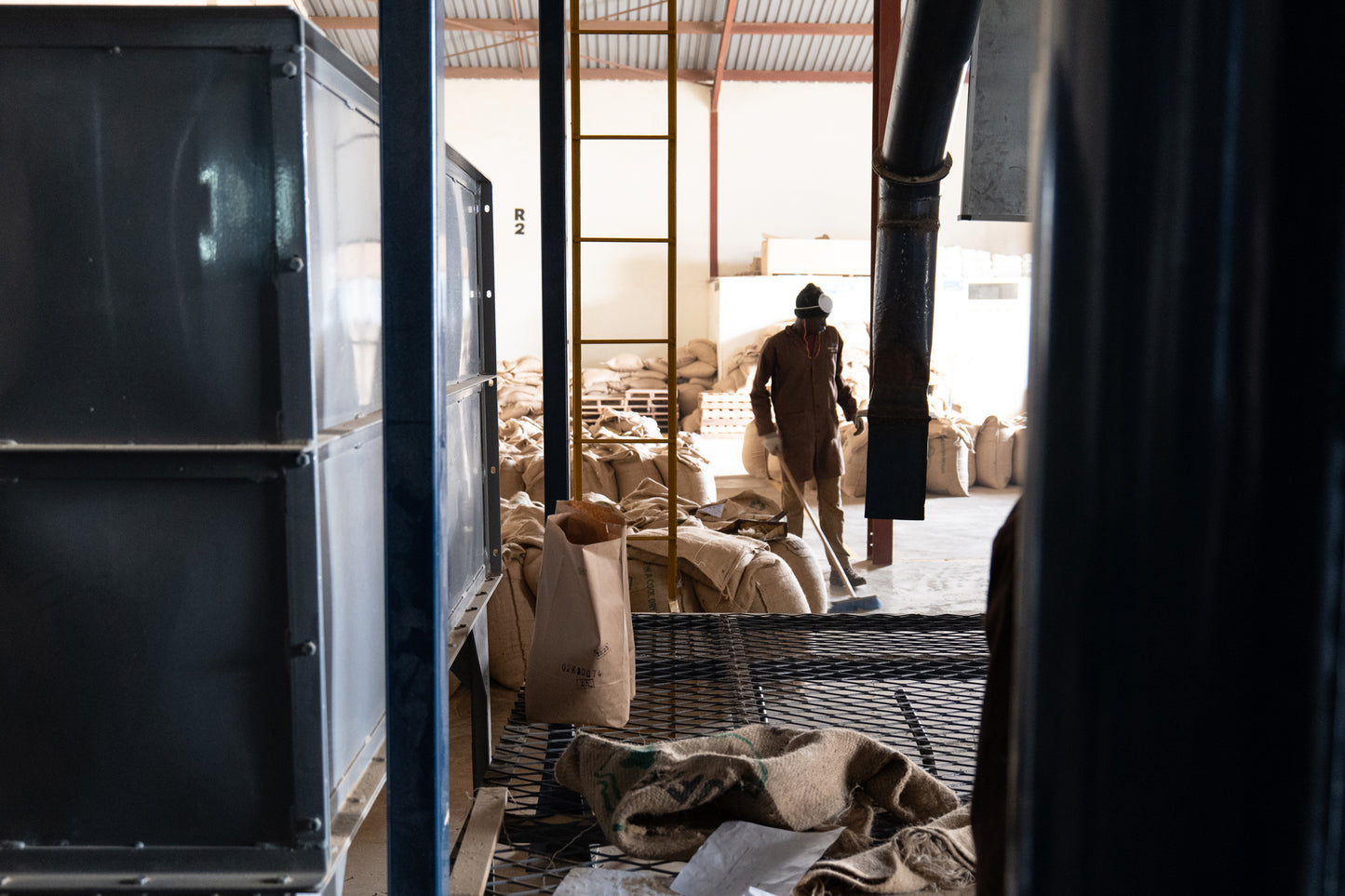
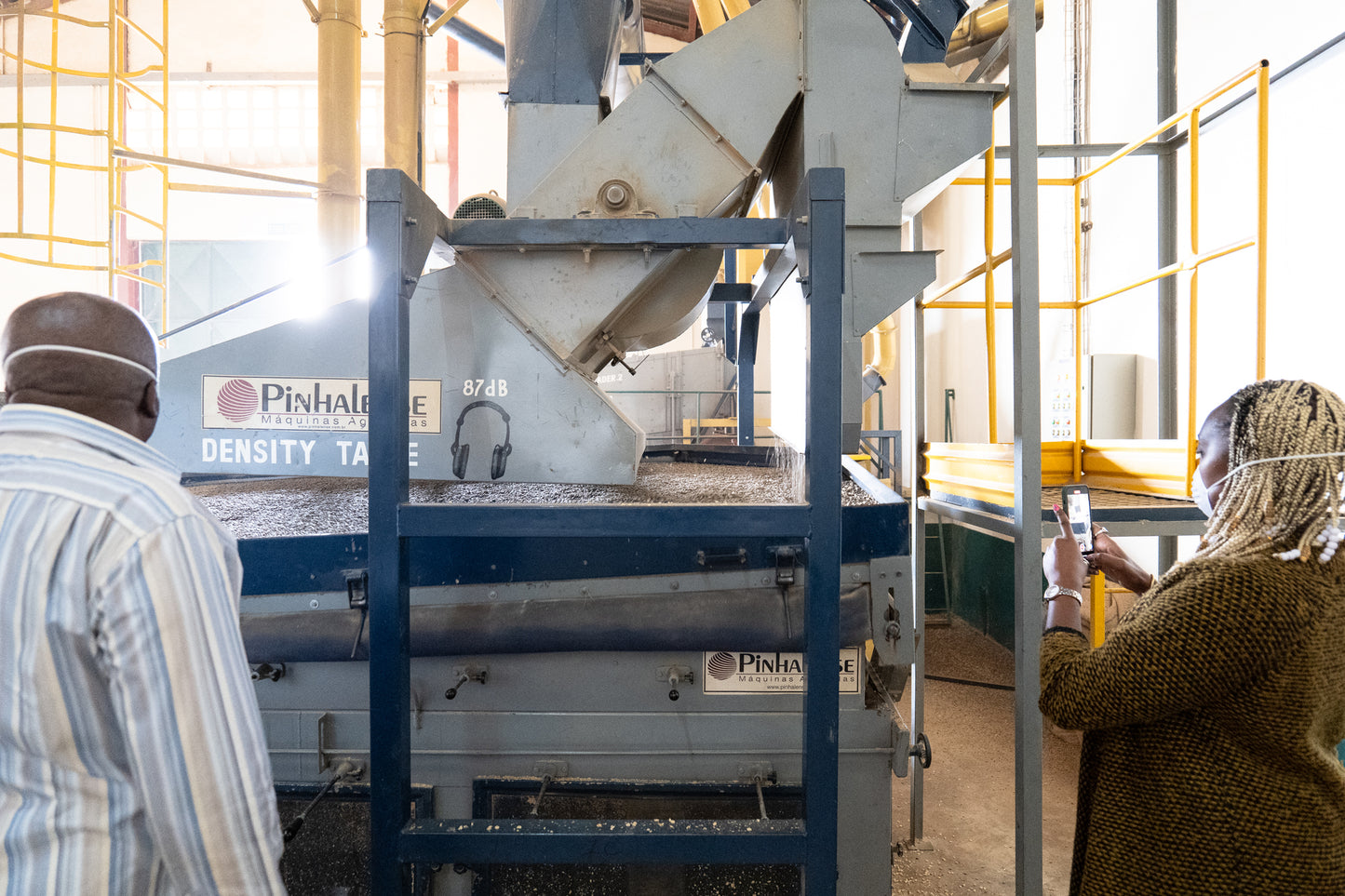
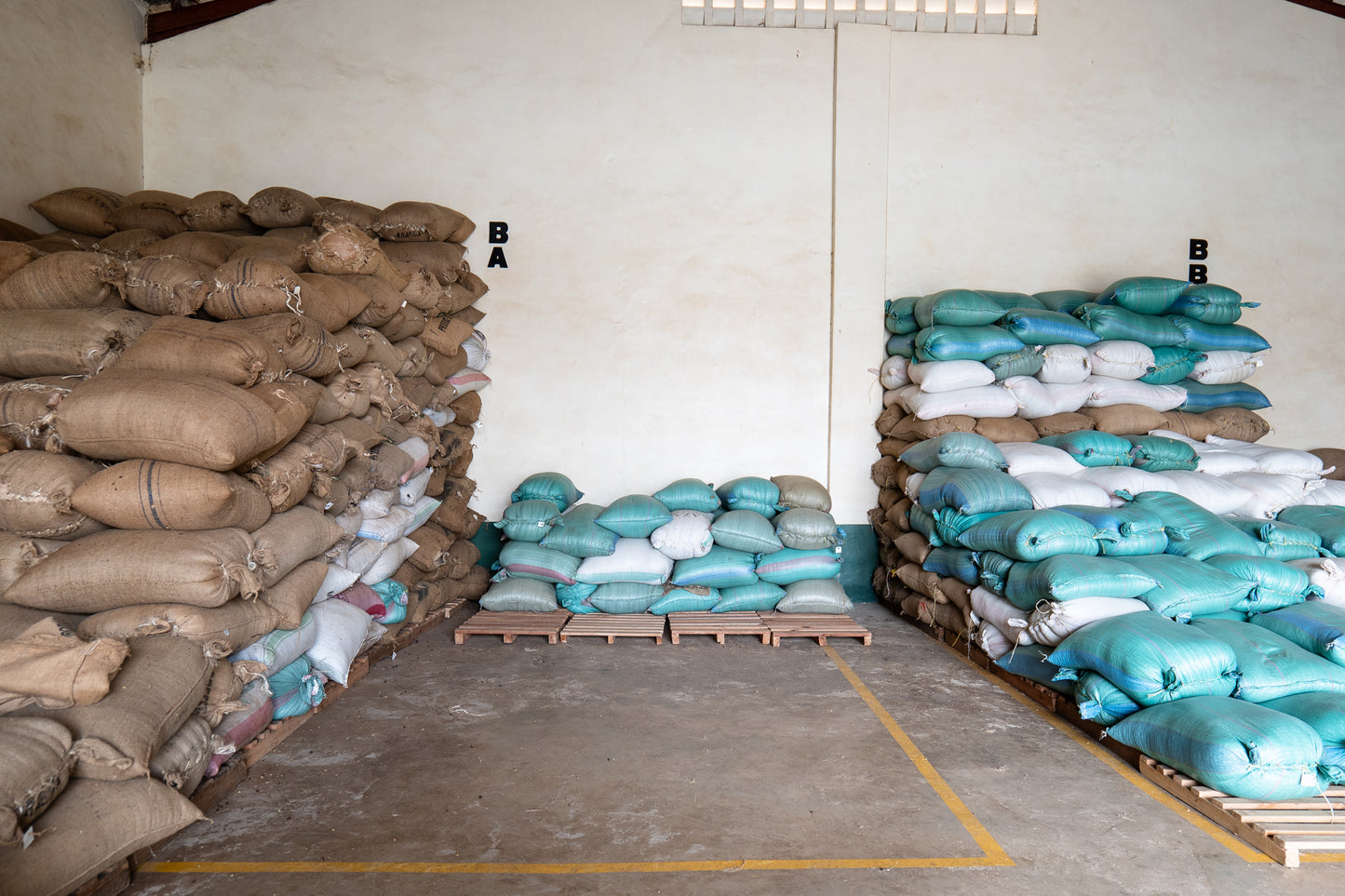
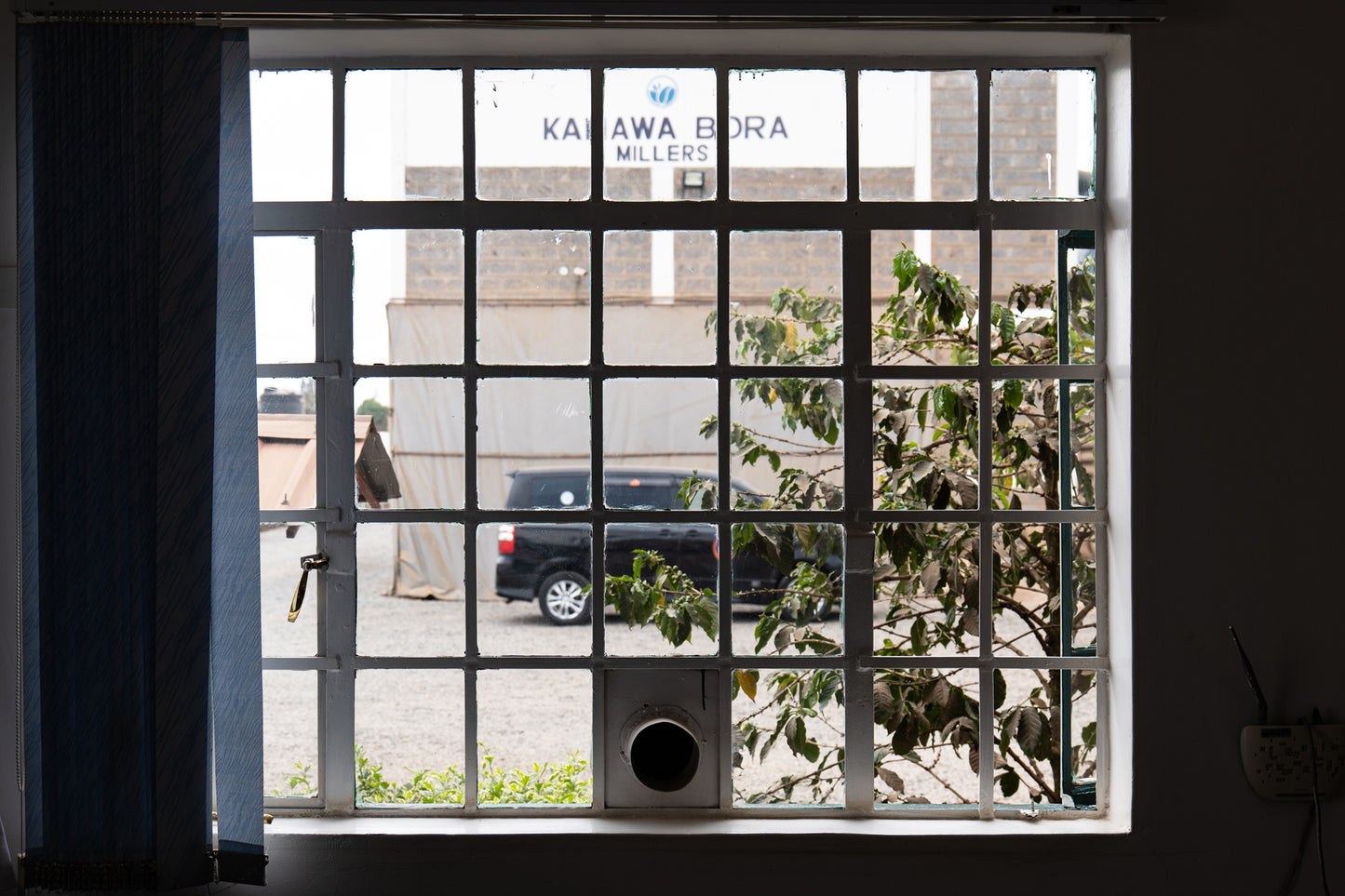
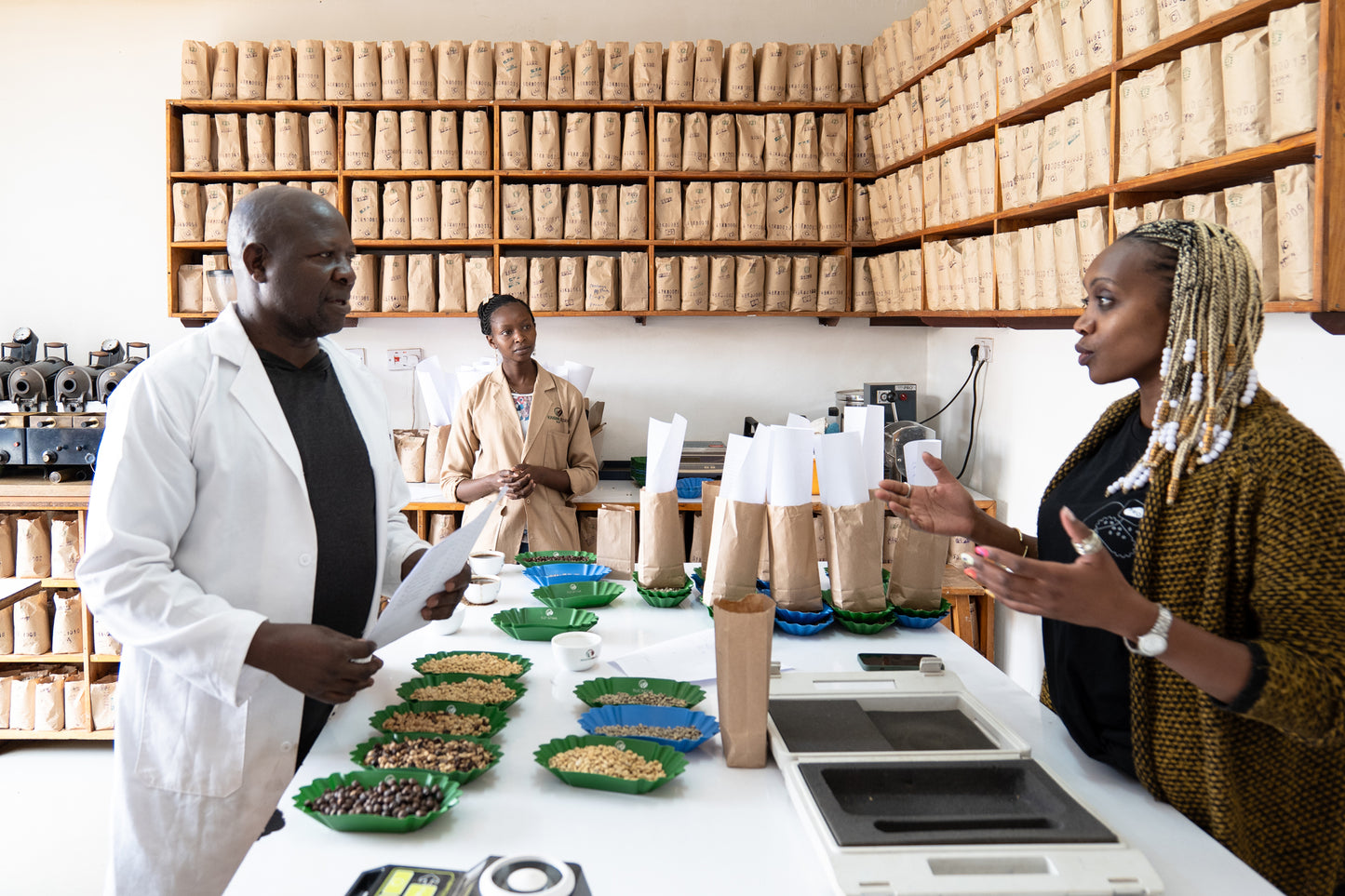
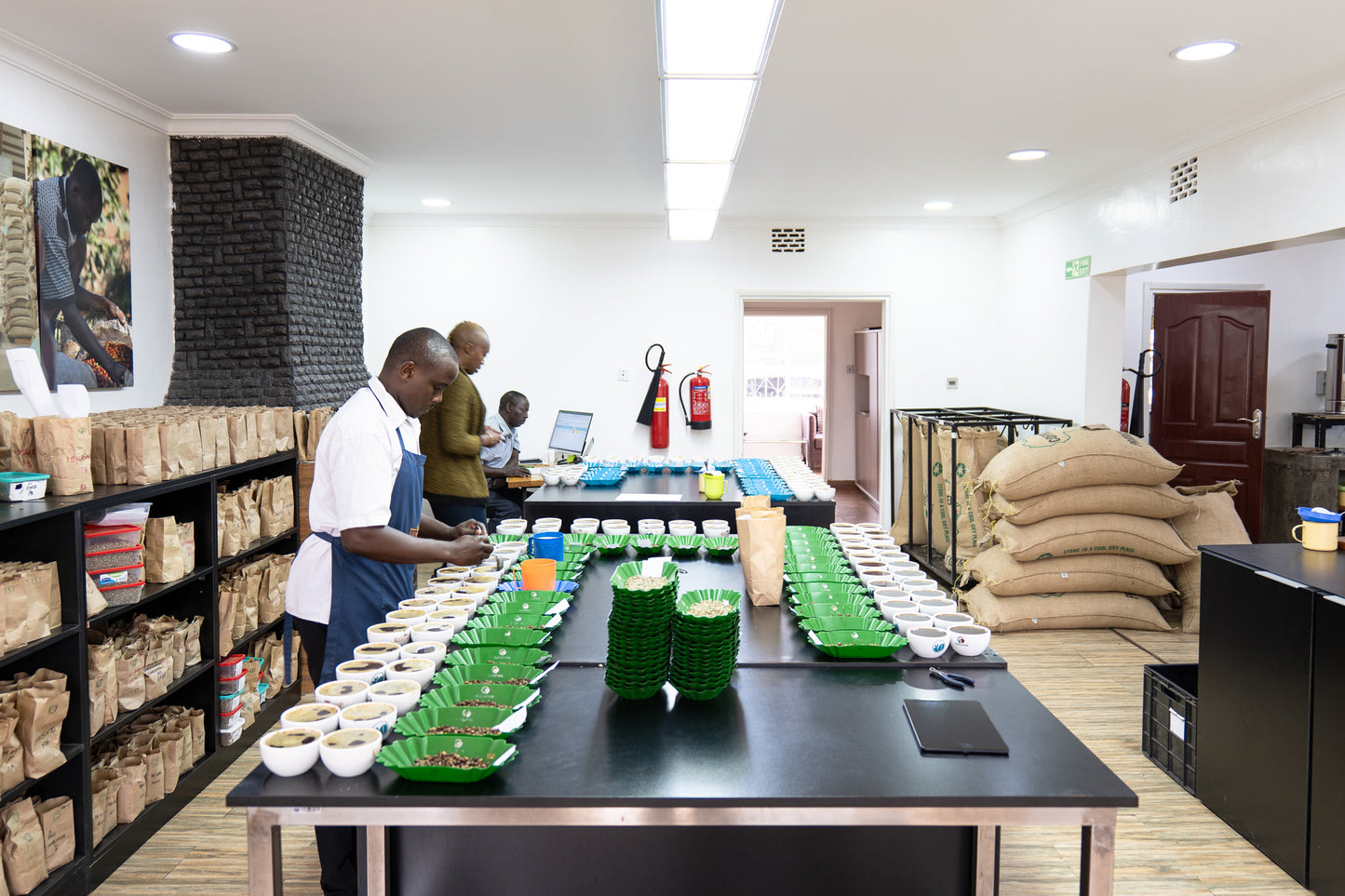
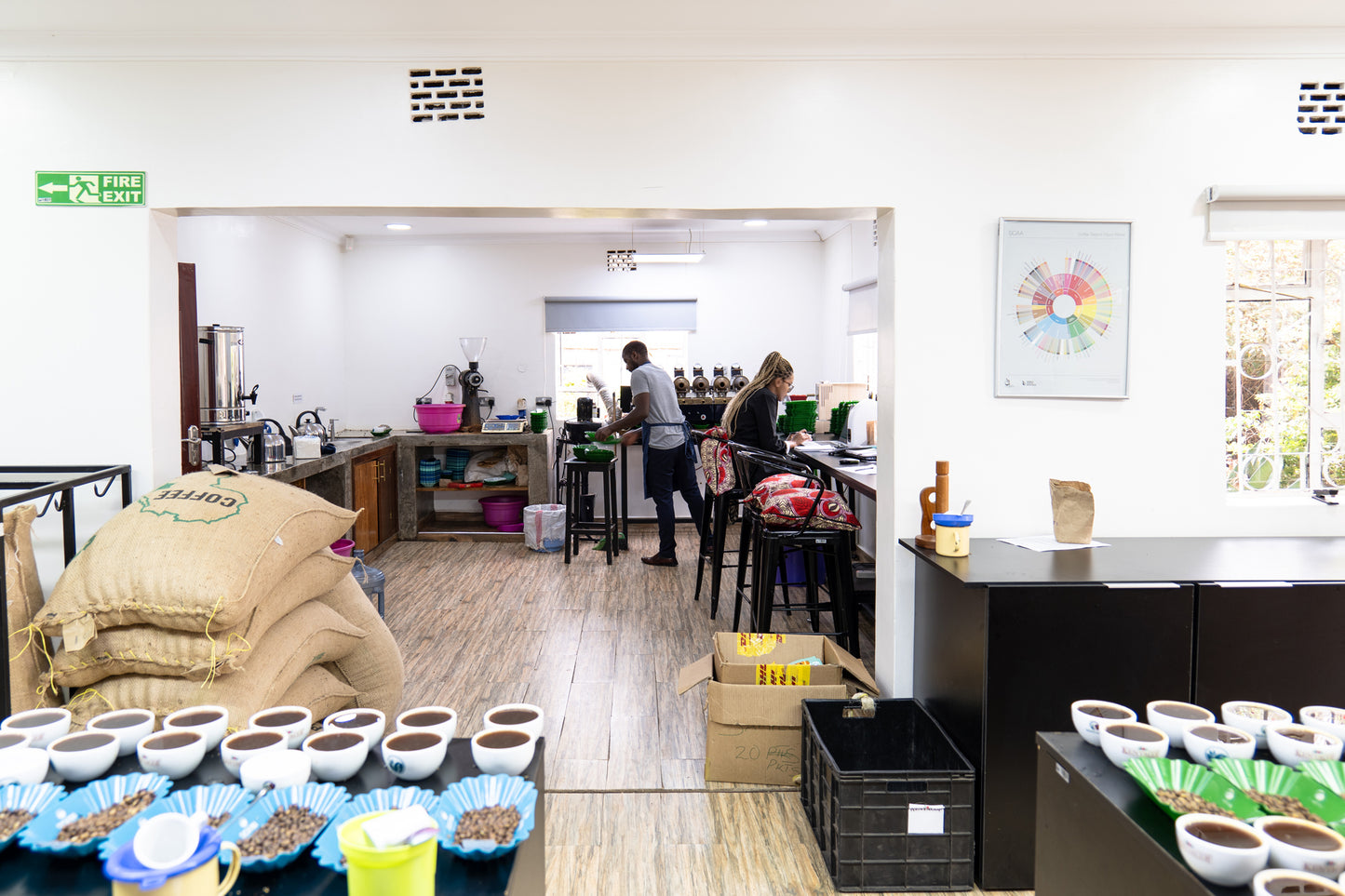
Price Transparency
We paid an FOB price of $4.24/lb for this coffee, which is 212% of the Fairtrade minimum price. Find out what this means here.
Chepnorio FCS
Washing Station: Chepnorio Factory
Producer: Chepnorio FCS
Purchasing relationship: 3
years
Region: Magire, Kericho, Great Rift Valley
Altitude: 1700-2000 masl, 0.1°S
The Chepnorio Farmers Cooperative Society is an assembly of smallholder coffee producers founded in 1985. It was founded by 50 members who produced around 150 bag of green coffee, which they sold at very low prices. In the meantime, the co-op has grown to several hundred members and produces more than 15 times the amount they used to.
Over the years, they managed to improve the quality of their coffee, build their own processing sites, purchase tools and appliances and increase their selling prices a lot. Transporting the coffee after harvest had been heavy work and their investment in a tractor has improved this, too.
Vava Coffee
When purchasing coffee from Kenya, Vava Coffee, a certified B Corp founded by Vava Angwenyi in 2008, is often our partner of choice. The social enterprise is committed to contributing to better future prospects for both local communities and the coffee industry as a whole. Vava Coffee has made it its mission to challenge the status quo and promote positive social and economic disruption within the coffee industry. Thanks to Vava’s passion, many coffee farmers are able to earn their income in a more sustainable way.
In the scope of the organization Gente del Futuro, Vava runs a coffee school on the small island of Lamu off the Kenyan coast. The school allows youths and young adults to participate in various SCA courses and obtain internationally recognized certifications, while also receiving additional training. In 2022, the school opened its own coffee shop called «La Dulce Toro», where the students can put into action what they learned, whilst being supported by experienced coffee professionals. This beautiful video offers some impressions of the coffee shop. Participation at the school is free and available to a limited number of participants. It is funded through contributions to Gente del Futuro, which we have been supporting financially with part of the percentage of our annual revenues.
Vava has also created a book along with photographer Portia Maae Hunt. «Coffee Milk Blood – a Story about us, by us» is a beautiful and thought-provoking photo book about the people in coffee production, colonial history – and present. Besides costs for production and distribution, the majority of the revenues go directly to Vava Coffee, part of whose revenue always goes towards the aforementioned school project Gente del Futuro.
Kenya
Coffees from Kenya are typically sought-after in the world of specialty coffee because of their juicy, vibrant yet clean, complex and crisp cup profile. Think notes of currant, berries, stone fruit, citrus fruit as well as florals. Of course, there are many different flavor profiles to be found in coffees grown in Kenya and we have been featuring a wide variety of Kenyan coffees over the years.
The country is quite unique in how coffee production is conducted as well. Though things may have changed more and more recently, a good part of Kenya's coffee production works in a similar way. Similar to other East African countries, coffee is often grown and harvested by smallholder farmers, who cultivate just a few hundred coffee trees or less.
The post-harvest processing is then done at so-called factories, most of the time with a very specific version of the washed method, also called double fermentation. After the harvest, the coffee flows through a series of interconnected channels and tanks.
First, the coffee cherries are pulped – meaning the beans are extracted from the fruit – and moved through channels by water to reach the first fermentation tanks. The mucilage-covered beans are then fermented for usually 12 to 24 hours, followed by a washing process to rinse them off. These two steps, the fermentation and washing, are repeated, which is where the term «double fermentation» comes from. During these stages, coffee cherries floating on top are removed.
Once the second washing is complete, the coffee is dried on raised beds. The drying process is usually done in two stages: first, the beans are spread out in thicker layers to quickly reduce the moisture content, and then in thinner layers to further reduce moisture and complete the drying.
While this process helps produce exceptional coffees, it does have its drawbacks, primarily its high water usage and labor-intensive nature. In our Kenya travel report, we cover the whole process and other topics in more detail. In recent years, an increased number of coffees has been processed as naturals, saving a lot of water, as opposed to the above described washed method.
Since the 1930s, Kenyan coffee has been traded at the Nairobi Coffee Exchange, where it's sold to the highest bidder each Tuesday, though in recent years, more coffee has been sold outside the auction system.
Brew Recommendation
Filter
Origami Dripper S, Origami 2 Cup paper filter
15g coffee, 250g water, 93°c
medium filter grind size
brew with a bloom of 50g + two pours of 100g each
total contact time 2:35-2:55
Espresso
Brew ratio: 1:2.3
Coffee: 20g in / 46g out
Extraction time: 26s











